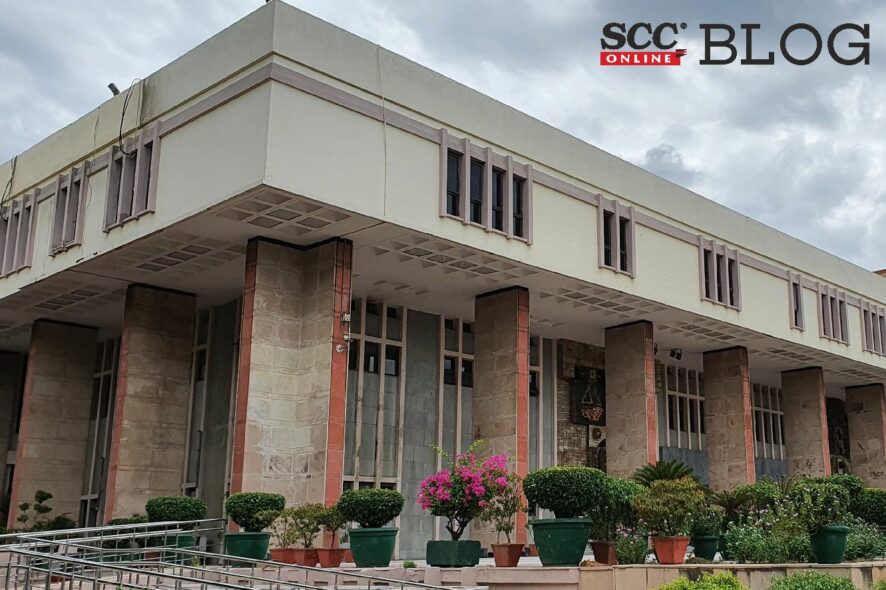Delhi High Court: Chandra Dhari Singh, J., granted bail to an accused on being satisfied with “reasonable grounds” as per Section 37 (b)(ii) of the NDPS Act, 1985.
An application under Section 439 of the Code of Criminal Procedure, 1973 for seeking bail in FIR under Sections 22 of the Narcotics, Drugs and Psychotropic Substances Act, 1985.
Factual Matrix
ASI Pawan Kumar received information that a person from Rohini Delhi was involved in sale and supply of Ecstasy (a party drug) in Delhi-NCR and would come near an apartment to deliver the same to someone else. On receiving the said information, the raid was conducted.
On conducting a formal search in light of provisions of NDPS Act, 100 Pills of Ecstasy were recovered and the same was seized. Hence, the FIR under Sections 22/29 of the NDPS Act was registered and further investigation of the case was carried out.
Accused disclosed that he had received the above-mentioned contraband from the applicant and later the applicant was apprehended and on recovering 20 grams of 3,4-Methylenedioxymethamphetamine (MDMA) from his possession, he was arrested.
In view of the above, charges were framed for the commission of offences under Sections 22 and 29 of the NDPS Act.
Analysis, Law and Decision
In view of the gravity of the consequences of drug trafficking, the offences under the NDPS Act have been made cognizable and non-bailable, High Court expressed while referring to Section 37 of the NDPS Act.
Section 37 NDPS Act does not allow granting bail for offences punishable under Section 19 or Section 24 or Section 27A and for offences involving commercial quantity unless the two-fold conditions prescribed under the Section have been met.
Before granting bail, the Court must be satisfied with the scheme of Section 439 CrPC.
The Court under Section 37(b)(ii) of the NDPS Act is not required to be merely satisfied about the dual conditions i.e., prima facie opinion of the innocence of the accused and that the accused will not commit a similar offence while on bail, but the court must have “reasonable grounds‟ for such satisfaction.
Elaborating further on the term “reasonable grounds”, Court expressed that, the said term is not capable of any rigid definition nor of being put into any straight-jacket formula, but its meaning and scope will be determined based on the surrounding facts and circumstances of each case. Thus, what may be reasonable in one set of facts may not be reasonable in another set of facts.
High Court noted that the main accused was charged with the possession of a larger quantity of contraband and on the basis of whose statement the applicant was arraigned and raised has already been released on bail. Hence the applicant’s application merited indulgence of this Court on the ground of parity.
“Reasonable Grounds” in the present matter were found by the Court.
The applicant had been incarcerated for more than 4 years as an undertrial, whereas on date, two of the witnesses have been examined and the trial remains pending.
On observing the above, Court expressed that,
Speedy Justice is a Fundamental Right enshrined under the ambit of Article 21 of the Constitution of India, and the same needs to be given effect by this Court in letter and in spirit, else it will remain as a dead letter of law.
Supreme Court’s decision in Abdul Rehman Antulay v. R.S. Nayak, (1992) 1 SCC 225 was cited wherein detailed guidelines were laid down with respect to speedy trial. The said guidelines were also upheld by a 7- Judge Bench of the Supreme Court in P. Ramachandra Rao v. State of Karnataka, (2002) 4 SCC 578.
Conclusion
Applicant was in jail for more than 4 years and out of 14 witnesses only 2 were examined to date and no possibility of trial to be concluded in the near future
Hence, the applicant cannot be incarcerated for an indefinite period and the Court must step in to ensure speedy justice to the applicant.
In view of the above discussion, the applicant was granted bail and the Court laid down emphasis on parity and clean antecedents of the applicant.
The applicant was directed to furnish a personal bond of Rs 50,000, with two sureties of like amount and bail conditions, were laid down.
While allowing the application, Court directed Trial Court to conclude the trial expeditiously. [Mahesh v. State (GNCTD), 2022 SCC OnLine Del 394, decided on 8-2-2022]
Advocates before the Court:
For the Petitioner:
Mr. Akshay Bhandari and
Mr. Digvijay Singh, Advocates
For the Respondent:
Kusum Dhalla, APP for the State







